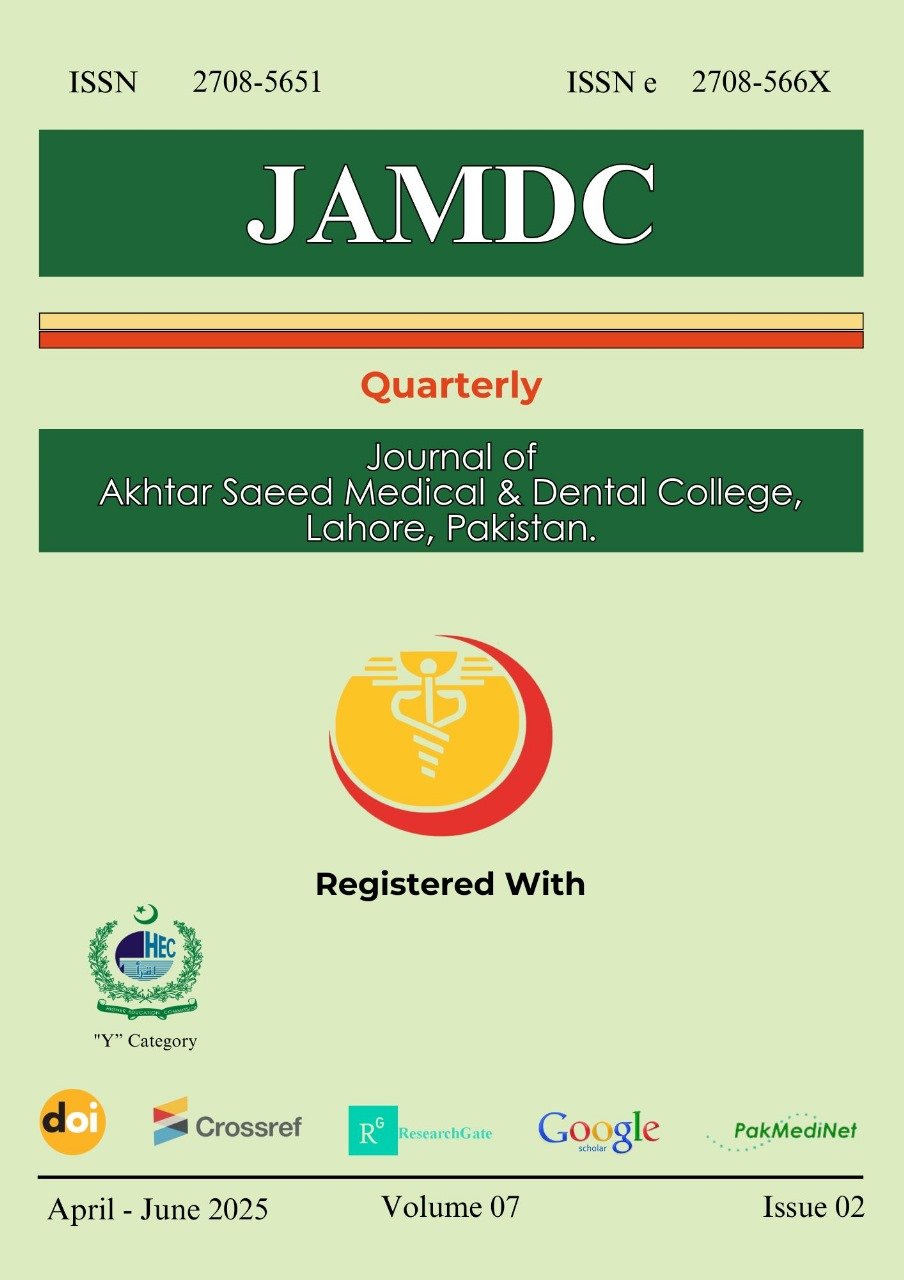SPECTRUM OF CAUSES OF PRE-DONATION DEFERRALS BASED ON DONOR HISTORY QUESTIONNIARE AT JINNAH HOSPITAL, LAHORE
Main Article Content
Abstract
Background: Pre-donation deferrals, determined through comprehensive donor history questionnaires, represent a crucial aspect of blood donation screening processes. Objective of this study was health care professionals can improve donor eligibility criteria to ensure the safety of blood transfusion recipients by investigating the various causes of these deferrals.
Materials and Methods: This cross-sectional study was conducted at the Blood Bank, Jinnah Hospital, Lahore, over a six-month period (August 2023 to January 2024). Data was collected from 550 donors aged, 18-65 years, both males and females through consecutive sampling after the informed consent through a structured questionnaire. It had with predefined questions which assess relevant information.
Results: Among 550 blood donors 537 were males (97.6%), and 13 were females (2.3%). The majority of donors were males in the age range of 21-40 years, with a mean age of 26 ± 1.2 years. A total of 65 donors (11.8%) were deferred from donating blood. Among the deferred donors, 28(43.1%) were temporarily deferred, while the remaining 37 (56.9%) were deferred permanently. The primary cause of deferral at our regional blood center was hepatitis C (27.6%), followed by hepatitis B (15.3%). In our study, besides Transfusion-Transmissible Infections (TTIs), the most common cause of deferral was recent blood donations (15.3%), followed by low hemoglobin levels (10.7%).
Conclusion: Blood donor deferral is a crucial step in donor selection and permanent deferrals causes being more prevalent in our setup demands adequate preventive strategies to address the prevailing causes of deferrals such as low hemoglobin levels and infections with HBV and HCV

